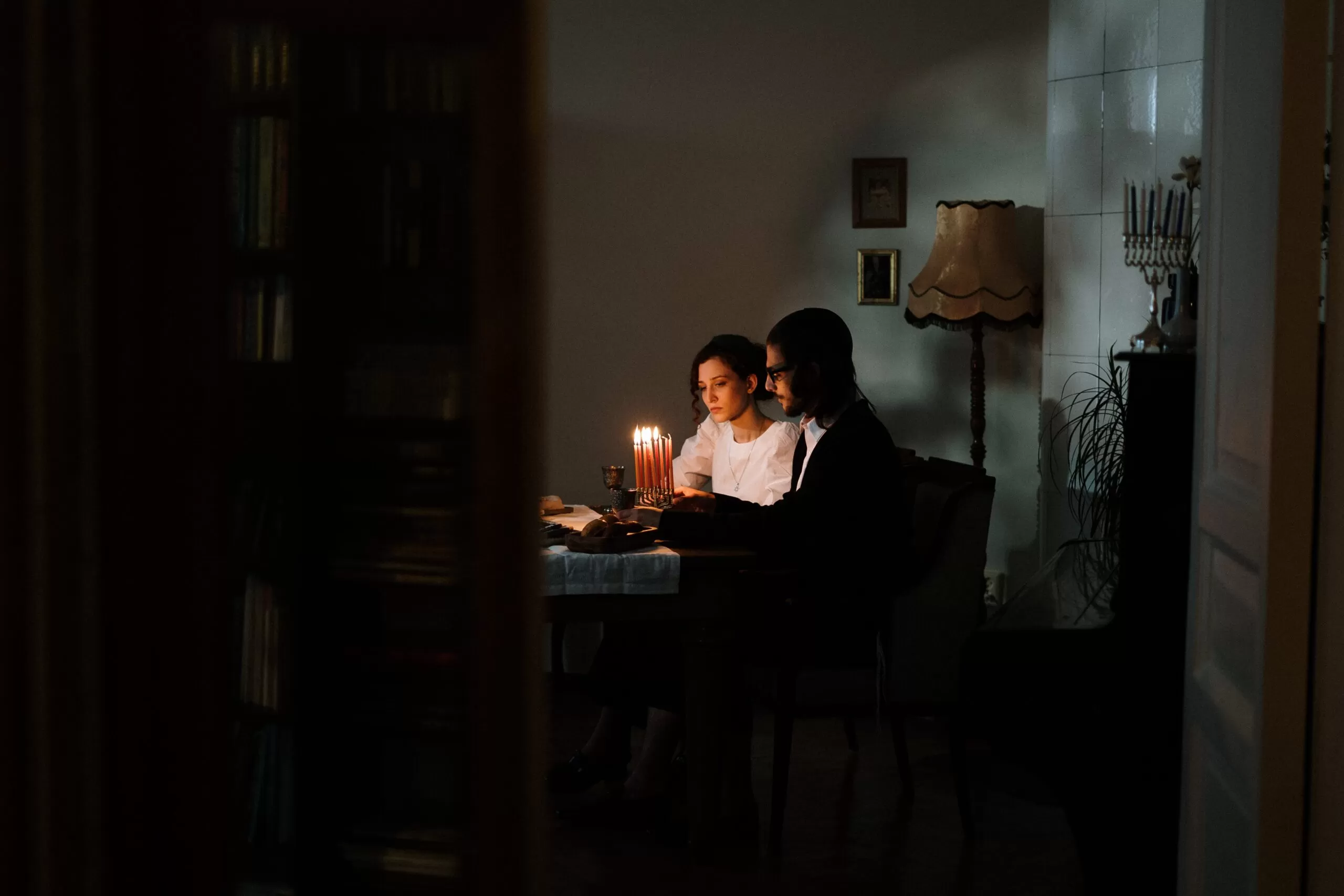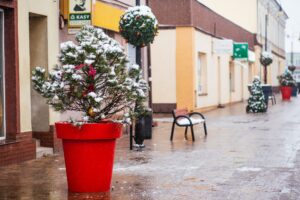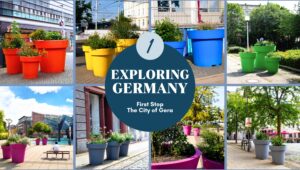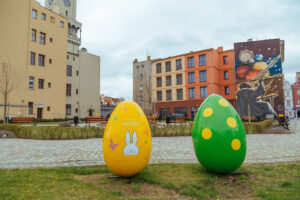The energy of the holidays fills the air, and winter paints our world with a white brush. However, let’s pause to look beyond our Christmas, New Year, or Santa Claus traditions. We want to embark on an extraordinary journey with you to countries where holidays surprise and entertain, and their traditions taste like exotic adventures. Not everywhere does winter bring snow, but everywhere it carries magical rituals and the unique atmosphere of holiday joy.
So, let’s immerse ourselves in the whirlwind of winter holidays around the world! Stories await us about the flickering lights of Hanukkah, the watery revelry of Songkran, the colorful celebration of Kwanzaa, and many other fascinating ceremonies. Are you ready for an exciting journey through cultures that consistently make winter special? Let’s begin!
In the colorful tapestry of cultural celebrations worldwide, Hanukkah stands out as a holiday radiating warmth and light. Although not a public holiday in Poland and many other places around the world, Hanukkah holds a special place in the hearts of Jewish communities, bringing people together in joyful celebration lasting eight nights. Let’s embark on a journey to the heartfelt traditions and inspiring history of Hanukkah.
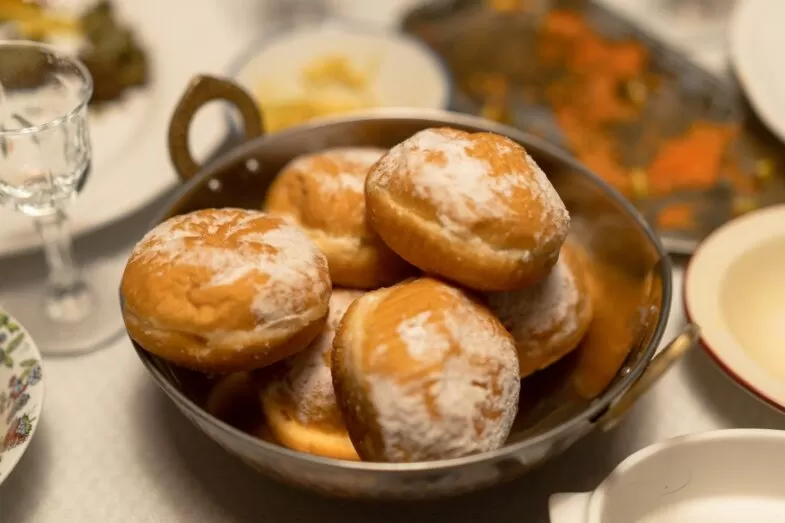

Lighting the Menorah:
As the sun sets on the first day of Hanukkah, Jewish families around the world gather to recite blessings in Hebrew before lighting the candles of the traditional menorah, known as the Hanukkiah.
The nine branches of this special candelabrum hold lights for each night, with one extra candle – the ninth candle, called the shamash, is used to light the other eight. Each night, a new candle is added until all eight brightly burn.
Spelling:
Doubts related to the spelling of this word arise from its English rendering: Hanukkah. However, the word originates from the Hebrew Chanukáh.
In lowercase, we write the word chanukiah – the candelabrum used during the Hanukkah holiday.
The celebration of Hanukkah goes beyond lighting candles, encompassing a rich array of experiences. Families gather to share delicious meals, sing joyful songs, and engage in the game of the spinning top called dreidel. Packages containing money, or even gold coins, known as “gelt,” often find their way into the hands of children, adding an element of excitement. In many homes, Hanukkah becomes a time for the beloved tradition of exchanging gifts.
In some families, portions of the Old Testament, called the Tanakh, are read together. It consists of three parts:
- Tora (תורה): The first five books of the Hebrew Bible, also known as the Pentateuch or the Law of Moses. It includes the Book of Genesis, the Book of Exodus, the Book of Leviticus, the Book of Numbers, and the Book of Deuteronomy.
- Neviim (נביאים): The Books of the Prophets, containing prophecies and stories of prophets, such as the Book of Isaiah, the Book of Jeremiah, and others.
- Ketuvim (כתובים): The Writings, encompassing diverse books such as Psalms, Proverbs, Job, and the Song of Solomon.
When Jews refer to the Old Testament in a Christian context, they often use the term Tanakh to emphasize that their biblical canon differs from the Christian canon.



Hanukkah commemorates events related to the Maccabean Revolt in the 2nd century BCE. At that time, the Jews rebelled against the Seleucid king Antiochus IV, who had prohibited the practice of Judaism and desecrated the Jerusalem Temple. Led by Judah Maccabee, the Maccabees regained control of the Temple and initiated the ritual cleansing and rededication of the Jerusalem Temple—their holiest site.
The legendary tale recounts that during this rededication, only a small jug of oil with the seal of the high priest was sufficient to keep the menorah lit for eight days, enough time to prepare new oil. This remarkable event is considered the miracle of Hanukkah and is a central theme of the holiday. Therefore, each year, Jews celebrate Hanukkah by lighting the eight candles of the menorah, one each night, to honor this miracle and symbolize enlightenment. This poignant story symbolizes the perseverance of Judaism through the trials of history—the endurance of light through the centuries.
Lublin Jews: Honoring a Rich Heritage in Poland

Lublin Jews:
Have you ever heard the term “Lublin Jews”? It refers to the Jewish community living in Lublin, a town in Poland. The history of Jews in Lublin spans many centuries and is an important part of the region’s history. Lublin, being a multicultural place, served as a significant center for the Jewish community for many years.
In pre-war Poland, before the Holocaust and World War II, Lublin was one of the main hubs of Jewish cultural, scientific, and religious life. This community contributed to the cultural diversity of the city, and Lublin was an important center of Jewish thought and tradition.
Unfortunately, during World War II and the Holocaust, the Jewish community in Lublin, like in many other places, experienced a tragic decline in numbers due to Nazi occupation and genocide.
Contemporary Lublin preserves traces of its rich Jewish history, and landmarks such as synagogues and cemeteries bear witness to the former presence of this community. Efforts are currently being made to preserve the memory of the Jewish history and heritage in Lublin today.
The celebration of Chanukah by the Jewish community in Lublin was not only a commemoration of a victorious uprising but also a joyful holiday that coincided with the Christian Christmas, sharing a few common elements. Resembling Christmas, the tradition of gift-giving added to the festive atmosphere, reinforcing the spirit of the celebrations. Both holidays, despite being associated with different traditions and histories, were united by the desire to share joy, family closeness, and celebrate together in a spirit of peace and love. This harmonious coexistence of holidays from different cultures and faiths highlighted the beauty of diverse religious and cultural cohabitation.

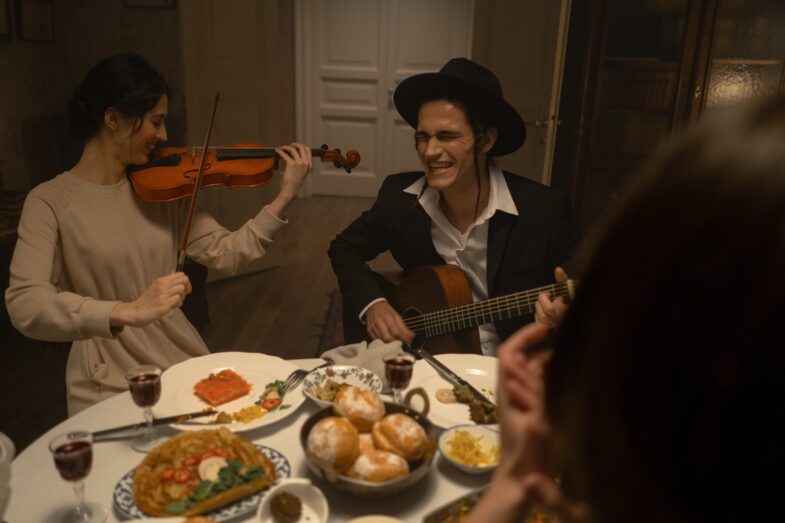
Culinary Delight in the Glow of Tradition:
As oil plays a significant role in the history of Hanukkah, special dishes prepared with oil take center stage on the festive tables of Jewish families. From the crispiness of latkes (potato pancakes) to the sweetness of sufganiyot (doughnuts), the crunch of mandelbrot (almond bread), and the aromatic rugelach (filled pastries), these culinary delights have become beloved treats worldwide.



Today, Hanukkah festivities extend beyond joyous celebrations, resonating with expressions of gratitude for religious freedom and prayers of thanksgiving for the survival of faith. The story of Hanukkah becomes a symbol of hope, illustrating the triumph of light over darkness and the resilient spirit of the people.

Celebrating Unity in Diversity:
As we delve into the traditions of Hanukkah, we discover a rich mosaic of Jewish heritage. While the majority of Jewish households, for example in the United States, trace their roots to Ashkenazi Jews (primarily from Central and Eastern European areas such as Germany, Poland, Russia, and other countries), others proudly carry the heritage of Sephardic Jews (originating mainly from Spain, Portugal, North Africa, the Middle East, and the Balkan regions).
The potluck dinner, known as Merenda, brought by participants on the final night of the festival, showcases unique cuisines, including delights like crispy cheese balls and doughnuts drizzled with honey, known as bimuelos, adding a tasty accent to the celebrations.
Eternal Tradition:
In Jewish communities outside of Israel, an additional day is typically added to religious celebrations, a practice rooted in antiquity when the beginning of months in the Jewish calendar depended on the visibility of the crescent moon after the New Moon. The start of the new month was determined by the Sanhedrin, the ancient Israelite high court in Jerusalem. When the date was announced, messengers were sent to spread the news among Jews living abroad.
Chanukah in Poland:
While Chanukah in Poland is not a public holiday, it holds special significance for the Jewish community, creating a shared bond during the joyous celebrations lasting for eight nights. Embarking on a beautiful journey through the traditions of Chanukah, we discover the richness of culture, history, and faith. This holiday illuminates not only winter nights but also the hearts of people, celebrating resilience, unity, and religious freedom.

In Poland, as the epicenter of Hanukkah celebrations, the traditional lighting of the menorah has become a symbolic act of uniting families and communities in prayer and reflection. Additionally, the culinary feast during holiday meals adds flavor and aroma to traditions that have endured for centuries. The story of the small jug of oil miraculously burning for eight days (hence the 8 days of Hanukkah) reminds us of the strength of faith and resilience in the face of historical trials.
Hanukkah is also a celebration of unity in diversity, a phenomenon underscored by the differences between Ashkenazi and Sephardic traditions.
Merenda, with its unique flavors, showcases the beauty of diverse culinary Jewish traditions, bringing people together in joyous celebration.
Hanukkah remains an eternal tradition, where light symbolizes not only triumph over darkness but also the resilience of faith in the face of difficulties. As we light each menorah candle, we are reminded of the power of collective celebration and values that endure despite cultural differences.
Should you wish to stay up-to-date and learn more about other fascinating tidbits from various corners of the world, be sure to subscribe to the blog’s newsletter below this article! And if you have a moment, leave a comment—I’d love to hear your reflections and experiences related to the holidays!
To wrap up, I’d like to share a link to the song ‘Dreidel, Dreidel, Dreidel,’ dedicated to children during the Hanukkah season. I hope this melodic tune adds an extra touch of joy to your hearts, making the winter season even more magical.
Song link: ‘Dreidel, Dreidel, Dreidel’ https://www.youtube.com/watch?v=7RczPreZDFU 🙂
Thank you once again for joining me on this journey through the holiday traditions of the world.
Until next time!
Some other interesting articles:
Cześć!
Nie Przegap! Dołącz do Naszego Newslettera!
Otrzymuj informacje o nowościach, specjalnych promocjach i inspirujących treściach. Wprowadź swój e-mail i bądź z nami na bieżąco!
Kamila Pieślak i zespół Terra Group

